Have you been dealing with ants, specifically biting ants and fire ants, on your lawn and garden and want to know how to get rid of these tiny invaders? You are in the right place!
Although ants are not usually considered a dangerous pest, they are a nuisance and can sometimes pose significant health risks and cause cosmetic damage to your lawn grass.
More so, ants would build their colony and anthills on your lawn over time, which may not only cause root damage to your grass but also create unsightly sights.
In this post, we will discuss ten natural and effective ways to control and get rid of ants from your lawn.
Natural Ways To Repel And Get Rid Of Ants In Your Lawn
Here are some of the best and most effective ways to repel and get rid of ants using natural solutions:
Using Sugar And Borax (Sodium Tetraborate)
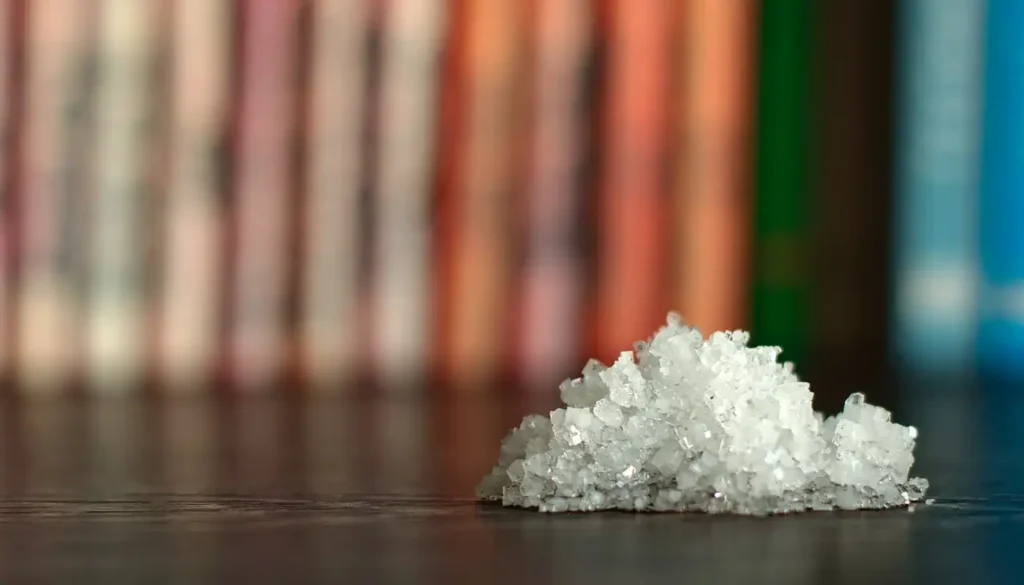
Borax is a naturally occurring powdery white substance. This mineral salt is often used as an emulsifier and cleaning agent. However, it can repel ants too.
To repel insects using sugar and borax, observe the following steps:
Add ½ teaspoon borax and eight teaspoon sugar to 1 cup warm water. Stir the solution gently until the borax and sugar are completely dissolved.
Soak some cotton balls in the solution and place them around your lawn where you see the ants or near their nest.
You can also sprinkle the borax powder, with or without sugar, directly around the ant hill, holes, or pathways. The ants will dry out once they come in contact with and ingest the mixture.
The essence of adding sugar to this method and other methods below is to attract the ants. The sugar acts as ant bait.
Borax is corrosive, harmful, and highly toxic to the eye. We recommend that you put on safety gloves and glasses while handling borax. Also, wash the mixing container thoroughly and keep borax away from pets and children.
Using White Vinegar
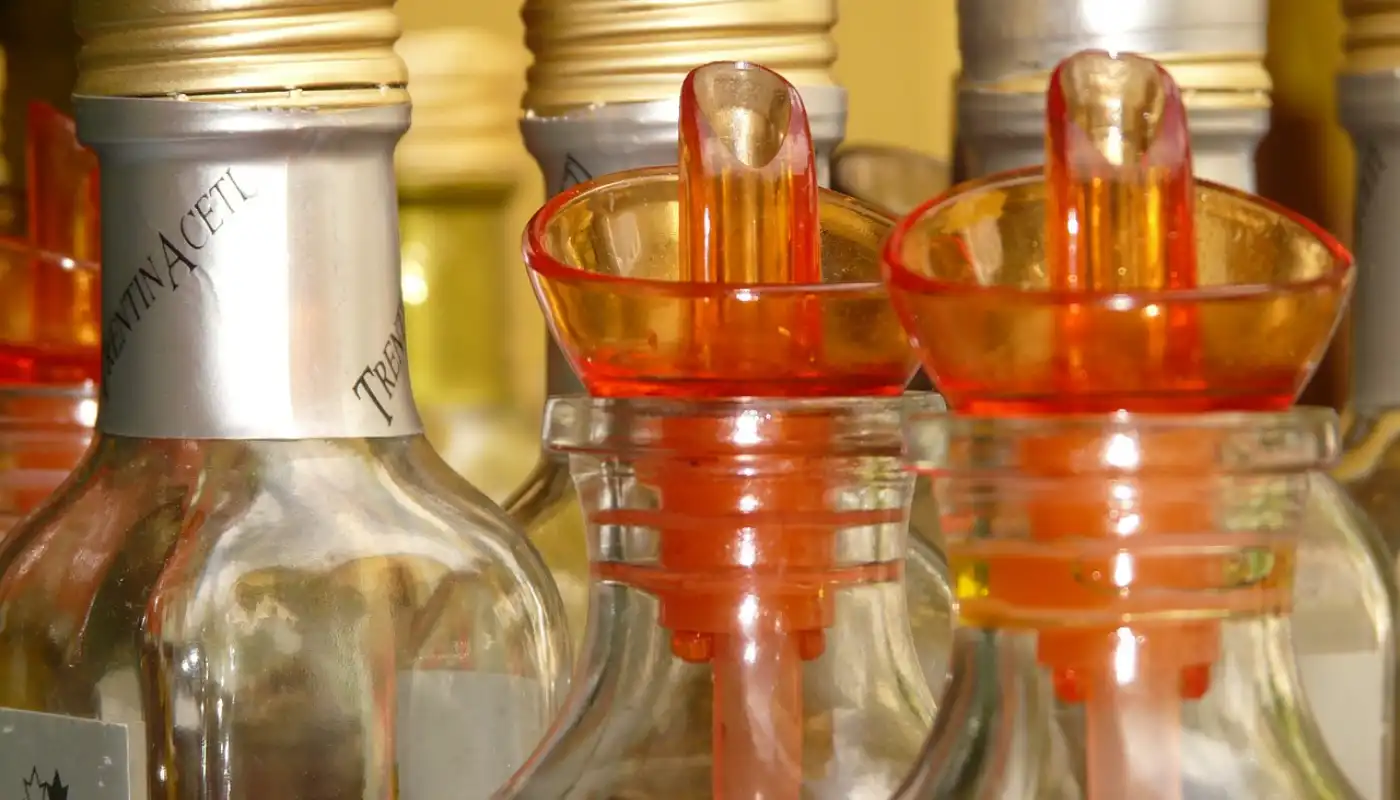
White vinegar is another cheap and effective way to eliminate insects from your lawn. Just like borax, white vinegar is a natural cleaning agent but can ward off insects.
Make a 1-to-1 solution of white vinegar and water. Apply the solution to the ants’ pathways or holes. You can also spray the mixture directly on the ants to kill them.
Also, vinegar has a strong smell that can disrupt the pheromones ants use to communicate.
Note that overspraying the vinegar solution or using a stronger concentration could impact your lawn negatively.
Using Diatomaceous Earth (Silicon Dioxide)
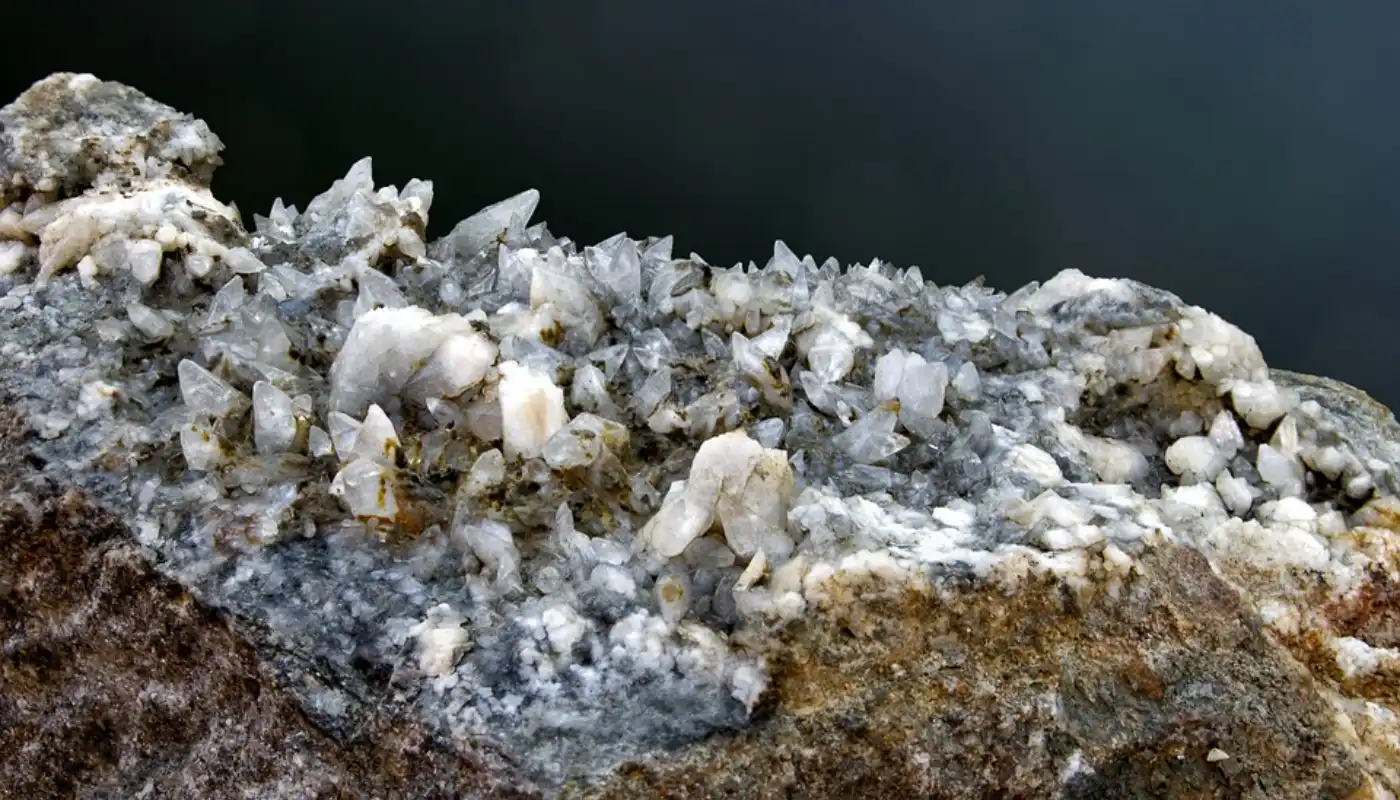
You can get rid of insects using Diatomaceous earth. Simply sprinkle the powder on the ants or in/around the mound area.
Diatomaceous earth will kill the ants by drying them out – absorbing the oils in their exoskeletons.
Please note that diatomaceous earth is an irritant, so don’t breathe it in or allow it to get on your skin. Also, use a protective face mask when handling it and follow the package directions carefully.
Using Baking Soda

Mix some baking soda with sugar and sprinkle it along the ants’ path. The mixture will kill ants in your lawn.
Although Baking soda is alkaline, it works similarly to vinegar, which is an acidic solution. Hence, don’t apply baking soda in large amounts directly on your grass. Doing this can alter the pH balance of the soil and damage your grass.
Using Lemon Juice
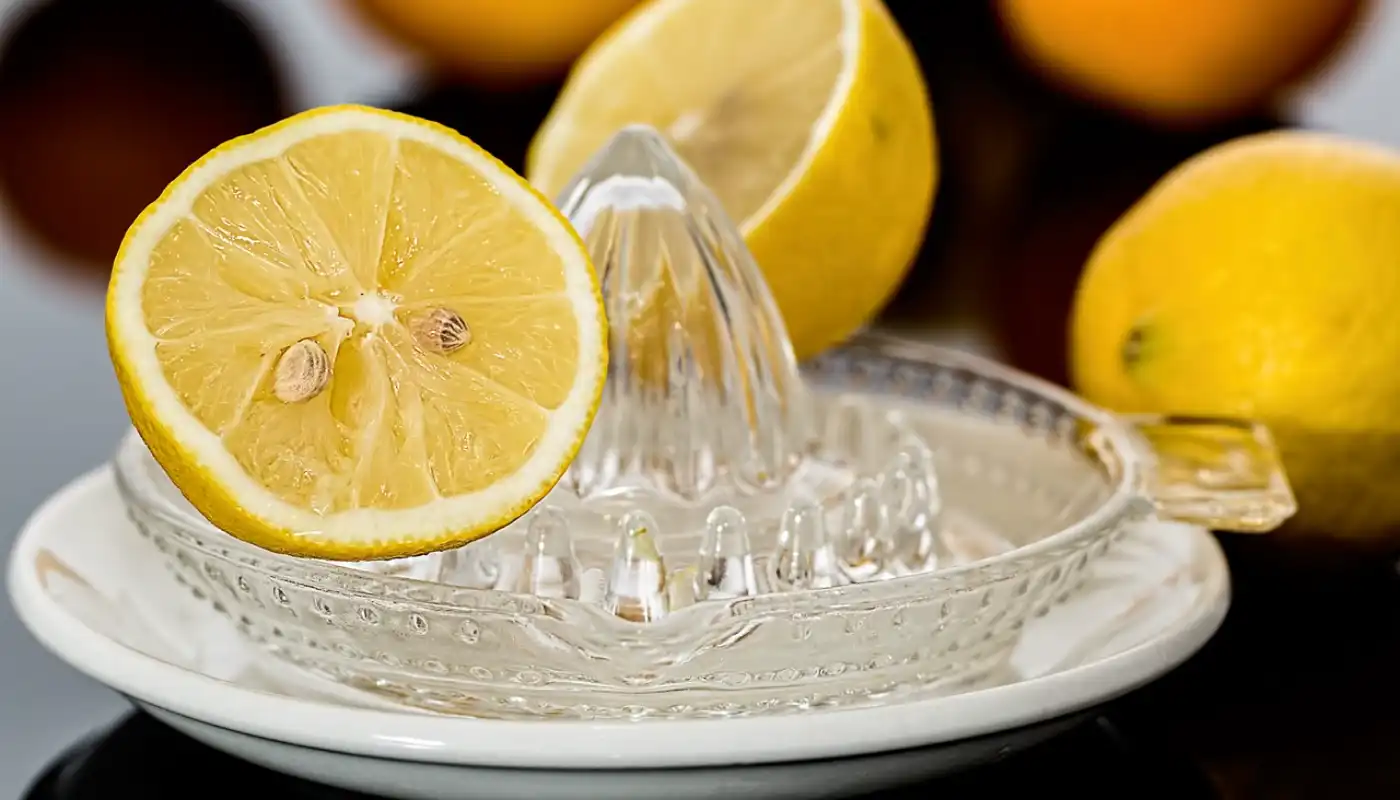
Do not use the lemon juice in concentrated form; this would be too dangerous for your grass. Instead, make a 1-to-1 solution of lemon juice and water.
Apply the mixture to the ant trails or around ant mounds to discourage and repel ants.
In concentrated form, lemon juice is slightly acidic and may burn your grass, causing it to turn yellow.
Using Neem Oil
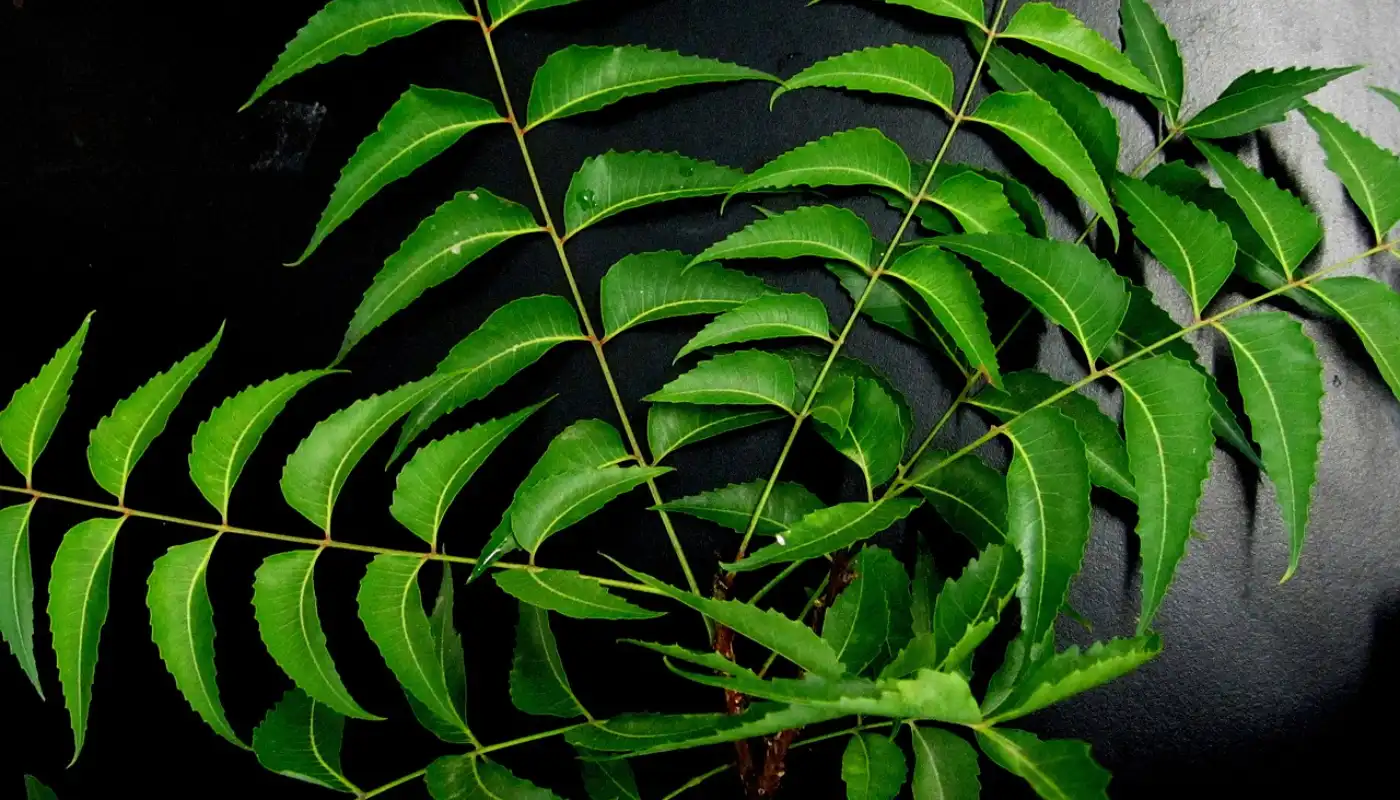
Neem oil, from the neem tree, is a natural insecticide and can help to repel ants. Neem oil is non-toxic, so apply it anywhere you see ants.
Don’t dilute the neem oil, as this may not be effective as full-strength neem oil. Neem oil is available at many online and health food stores.
Boric acid
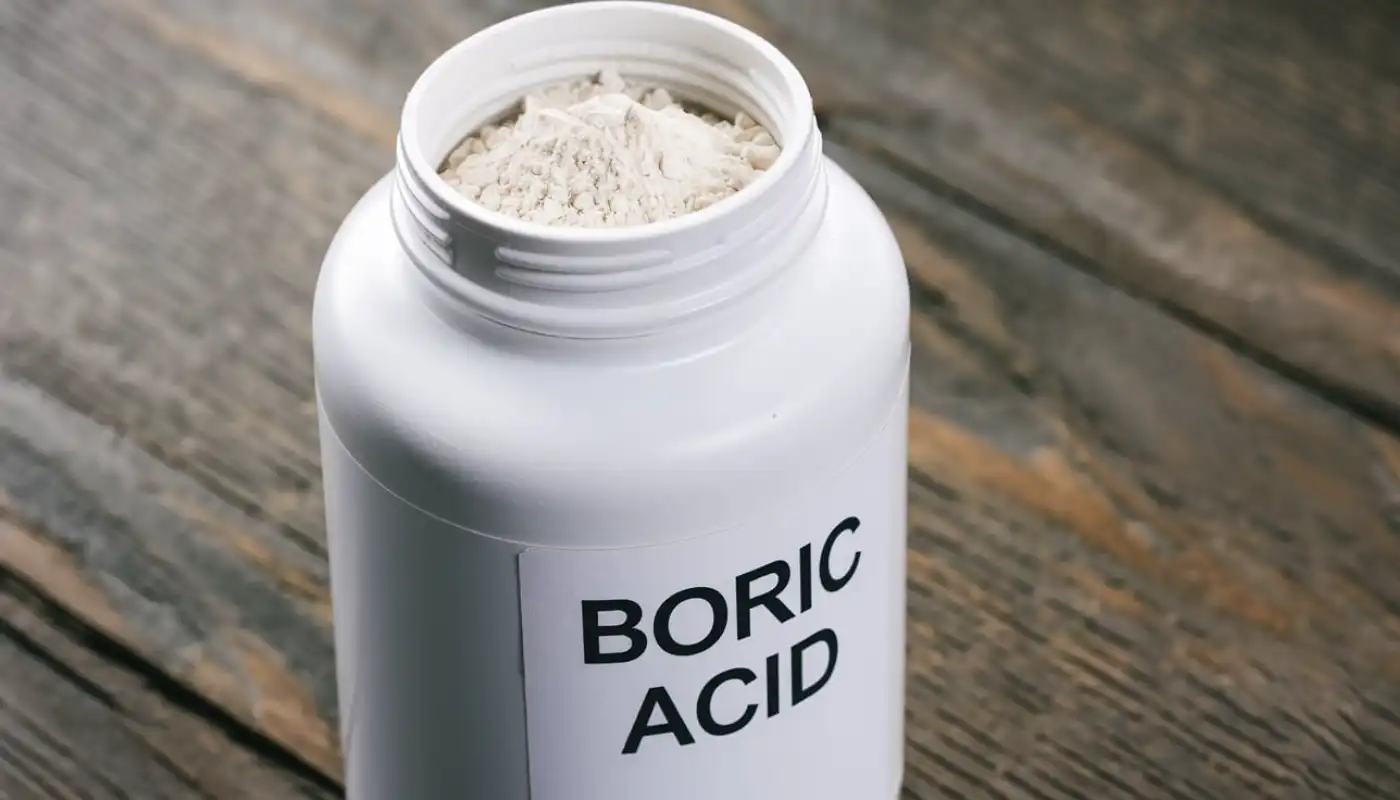
Boric acid, similar to borax, has been reported to be effective at killing certain types of ants; perhaps, it will eliminate those invading your lawn, too.
To use boric acid, add ½ teaspoon of boric acid, eight teaspoons of sugar to 1 cup of warm water. Stir the mixture gently until both the sugar and boric acid are dissolved.
Soak cotton balls in the mixture and place them around your lawn where the ants are.
Don’t forget to put on safety gloves when making this mixture because of the corrosive nature of boric acid. After use, wash the mixing bowl thoroughly, and don’t forget to keep boric acid away from your children and pets.
Using Coffee Grounds

Brewed coffee grounds can also repel ants. Sprinkle some freshly brewed coffee grounds on the ants’ trails or around their mounds to repel the ants.
Note that coffee grounds will lose their potency once they are dry. Hence, you would need to change them often.
Observe Regular Care And Maintenance

Regular lawn care and maintenance is very effective at preventing ants in your yard and lawn in the first place.
An effective maintenance practice is mowing your lawn to a height of 3 inches and raking it regularly to keep the ants away.
Using Boiling Water

Some gardeners are against this method because it may end up damaging the grasses if you are not careful enough.
However, if you can be very careful to apply the boiling water only on the ants and their holes, this can be an effective method to eradicate the ants.
The boiling water will immediately kill all the ants in the holes.
Ants love dry conditions; if you know you can’t be careful with boiling water, watering your lawn regularly can also do the magic.
Regular watering with warm water in the morning or late evening can keep ants away from your lawn.
However, if all the methods listed above don’t work, try pesticides or other nontoxic commercial ant repellants.
How To Deal With An Ant Hill
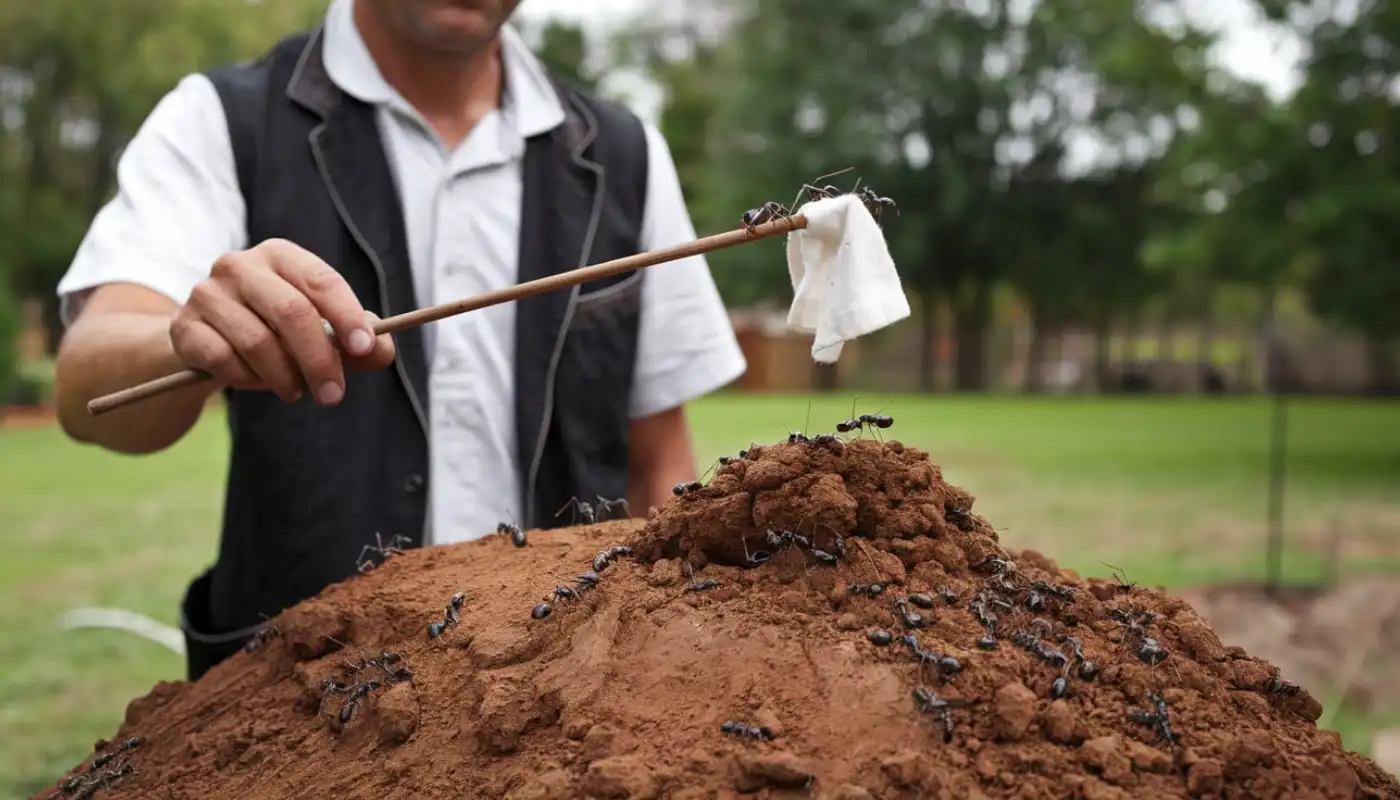
It’s possible that ants have been invading your lawn for a long time and have built their colonies and ant hills everywhere.
Before dealing with the ant hills, you need to first get rid of the ants in your lawn by following the methods listed above.
When you are certain that there are no more ant activities on your lawn, then it’s a good time to remove the hills and nests. Simply break up the hills and level them out with a rake.
Conclusion
We listed above some effective strategies to get rid of ants on your lawn. Remember that you may need to combine these methods for effective ant control.
In general, keep your lawn clean, keep your grass bare and healthy, and eliminate any sources of attraction for ants.
If the ant infestation remains persistent even after applying the above methods, you need to engage a professional pest control service for tailored advice and solutions.
If you need help getting rid of slugs in your garden, here are eight easy methods to achieve that. You can also read up on how to keep raccoons and groundhogs out of your garden.
Frequently Asked Questions (FAQs)
Some natural ways to get rid of ants and other insects from your lawn permanently include using water-based mixtures of boric acid, Diatomaceous earth, or borax. You can also pour boiling water into the ant holes. If these methods don’t work, try some non-toxic commercial ant repellants.
Generally, ants dislike the smell of white vinegar, coffee grounds, black and red pepper, lemon eucalyptus, tea tree, peppermint, and some other essential oils.
Both borax and boric acid do almost the same thing chemically. However, borax is more active at a lower temperature and doesn’t survive long at higher temperatures. Boric acid, on the other hand, is more active at a higher temperature.






